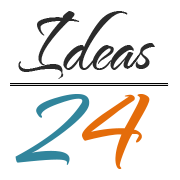-
Question of
How many neurons are approximately in the human brain?

-
10 million
-
100 million
-
10 billion
-
100 billion
Correct Wrong
The human brain is an incredibly complex organ, consisting of approximately 100 billion neurons. Each neuron is connected to thousands of other neurons, forming an intricate network of communication.
-
-
Question of
On average, how much does an adult human brain weigh?

-
1 pound (0.45 kg)
-
3 pounds (1.36 kg)
-
5 pounds (2.27 kg)
-
7 pounds (3.18 kg)
Correct Wrong
The average adult human brain weighs about 3 pounds, making up about 2% of a person's total body weight.
-
-
Question of
What percentage of the body’s energy does the brain use?

-
5%
-
10%
-
20%
-
30%
Correct Wrong
Despite its relatively small size, the brain is an energy powerhouse, using up to 20% of the body’s energy. It needs constant fuel to function, even when you're sleeping.
-
-
Question of
Approximately how much of the body’s blood is supplied to the brain?

-
5%
-
10%
-
15%
-
20%
Correct Wrong
The brain requires a constant supply of blood to function properly, receiving about 20% of the body’s total blood flow.
-
-
Question of
How fast can neurons transmit information?

-
Up to 1 mile per hour
-
Up to 10 miles per hour
-
Up to 100 miles per hour
-
Up to 200 miles per hour
Correct Wrong
Neurons can transmit information at incredible speeds, up to 100 miles per hour, allowing for quick thinking and reactions.
-
-
Question of
What does brain plasticity refer to?

-
The brain’s ability to change shape
-
The brain’s ability to heal itself
-
The brain’s ability to adapt and reorganize itself
-
The brain’s ability to shrink with age
Correct Wrong
Brain plasticity, or neuroplasticity, refers to the brain's remarkable ability to adapt and reorganize itself, forming new neural connections throughout life.
-
-
Question of
How much information is the human brain estimated to be able to store?

-
The equivalent of 10 terabyte
-
The equivalent of 100 terabytes
-
The equivalent of 1 petabyte
-
The equivalent of 10 petabytes
Correct Wrong
The human brain's memory capacity is astounding, estimated to be equivalent to about 1 petabyte, or a million gigabytes.
-
-
Question of
Which part of the brain is the largest?

-
Cerebrum
-
Cerebellum
-
Brain Stem
-
Limbic System
Correct Wrong
The cerebrum is the largest part of the human brain, making up about 85% of the brain’s weight. It is responsible for higher cognitive functions including reasoning, problem-solving, and creativity.
-
-
Question of
How much of the oxygen we breathe is used by the brain?

-
5%
-
10%
-
20%
-
25%
Correct Wrong
The brain is highly dependent on oxygen and uses about 20% of the oxygen we breathe. A lack of oxygen to the brain for even a short period can have detrimental effects.
-
-
Question of
How active is the brain during sleep?

-
Less active than when awake
-
As active as when awake
-
More active than when awake
-
Completely inactive
Correct Wrong
Surprisingly, the brain is as active during sleep as it is when you’re awake. It is busy processing information, forming memories, and repairing itself.
-
-
Question of
What is the main source of energy for the brain?

-
Fats
-
Proteins
-
Glucose
-
Vitamins
Correct Wrong
The brain relies heavily on glucose as its main source of energy. It consumes about half of the body’s glucose energy.
-
-
Question of
How quickly can the brain analyze information?

-
In a few seconds
-
In less than a second
-
In a few minutes
-
In a few hours
Correct Wrong
The brain is incredibly fast at processing information, able to analyze incoming data in less than a second.
-
-
Question of
Does having a bigger brain mean you are more intelligent?

-
Yes, always
-
No, not necessarily
-
Only in men
-
Only in women
Correct Wrong
Brain size does not directly correlate with intelligence. Other factors, such as the number of neural connections and the efficiency of the brain’s networks, play a significant role in intelligence.
-
-
Question of
How effective is the brain at multitasking?

-
Highly effective
-
Moderately effective
-
Not very effective
-
Completely ineffective
Correct Wrong
Despite popular belief, the brain is not very effective at multitasking. Trying to do multiple tasks at once can lead to mistakes and reduced efficiency.
-
-
Question of
How does the brain change as we age?

-
It grows in size
-
It loses some of its neural connections
-
It becomes faster
-
It requires more energy
Correct Wrong
As we age, the brain undergoes various changes, including a reduction in the number of neural connections. However, engaging in mentally stimulating activities can help maintain cognitive function.
-



















